Iran Claims 60% Growth In Oil Production Since 2021
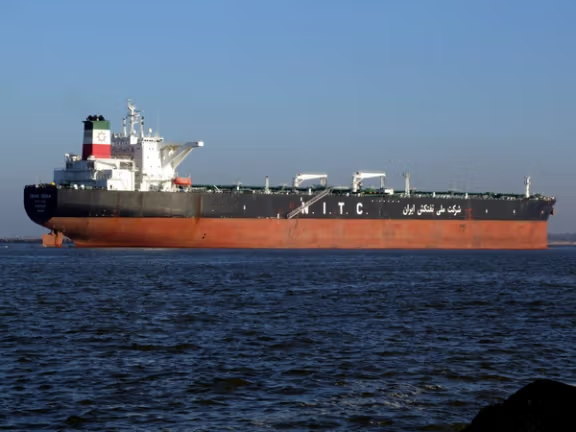
The CEO of the National Iranian Oil Company announced a 60% growth in the country's oil production over the past two years in spite of global sanctions.

The CEO of the National Iranian Oil Company announced a 60% growth in the country's oil production over the past two years in spite of global sanctions.
While Mohsen Khojasteh-Mehr attributed the achievement to “meticulous planning” within the government of President Ebrahim Raisi, a substantial portion of the shipments originated from stockpiled oil on tankers and ground facilities. With these reserves diminishing, Iran faces the imperative to boost production to sustain the current export pace.
The deputy oil minister stated that according to the statistics of the Central Bank of Iran (CBI), the oil and gas sectors have played the biggest role in the country's economic growth.
According to reports from the IRNA state news agency, Khojasteh-Mehr also added that “in the past two years, the oil industry has witnessed the signing of 54 contracts valued at $80 million.” He specified that the National Iranian Oil Company “holds 29 contracts, totaling $29 million, and anticipates an additional $40 million to be added to the company's share by the year's end.”
Experts say Iran possessed a stockpile of 115 million barrels in mid-2022. However, most of this oil has been sold, leaving only 27 million barrels—a quantity barely sufficient to sustain one month of exports.
Despite full US sanctions on Iranian oil exports imposed in May 2019, China remains the primary buyer. Initially, Iran's shipments dropped significantly to around 300,000 barrels per day. However, following the Biden administration's indirect talks with Tehran to revive the JCPOA nuclear deal, Chinese purchases increased. Some observers suggest that the United States has exercised restraint in cracking down, possibly to avoid jeopardizing the prospects of a nuclear deal.
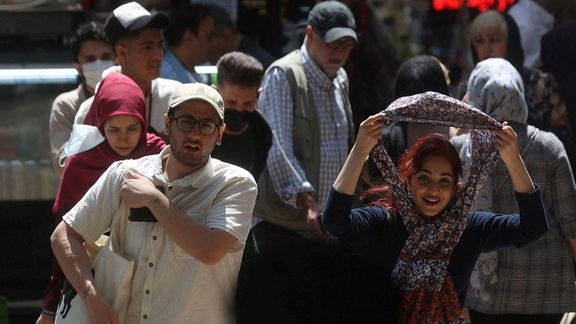
Nine former politicians and civil activists in Iran have demanded the abolition of compulsory hijab, calling it “double suppression” of women.
“The Islamic regime has resorted to hijab to double its discrimination against women in an era when human equality, regardless of gender, race, ethnicity, creed and religion, plays a pivotal role in progressive human discourse,” a statement published Monday by Zeitoun news website said.
“The cruel and violent measures to enforce the mandatory hijab have been disastrous not only for women, but also for their fathers, husbands, and brothers. In other words, Iranian men have also found it difficult to bear so much oppression of women,” said the statement six of the signatories of which are also prominent political and intellectual figures.
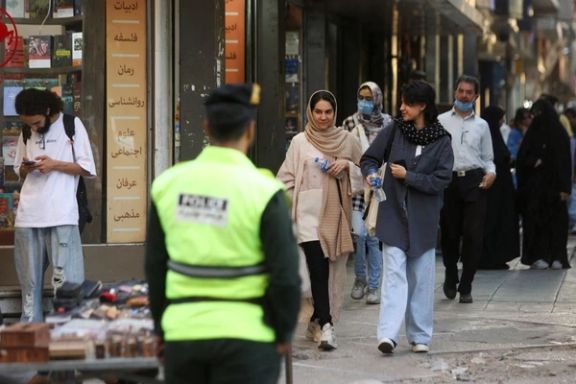
Most of the signatories, including prominent female Islamic scholar Sedigheh Vasmaghi, are known as “religious intellectuals” in Iranian politics, meaning they advocate a moderate view of Islam.
Vasmaghi, 63, recently removed her veil after decades and even challenged Supreme Leader Ali Khamenei’s hijab edict, arguing that there is no foundation in the Quran or the Sharia for such an edict.
Zahra Rahnavard, one of the leaders of Iran's Green Movement, is also among the signatories of the statement. Rahnavard and her husband Mir-Hossein Mousavi have been under house arrest since 2011. The seventy- eight-year-old academic and artist chose to wear the hijab before the Islamic Revolution of 1979 and has still held on to it. Mousavi was prime minister in the early years of the Islamic Republic and both were committed supporters of the regime.
Prominent human rights lawyer and Sakharov Prize winner Nasrin Sotoudeh, 60, however, has for years fought against the compulsory hijab and defended other women who were prosecuted for protesting the mandatory hijab.
The statement also criticizes the regime for denying civil and human rights such as the right to work, study, benefit from social rights and services such as healthcare for not abiding by the hijab rules.
“These extreme beliefs and methods have imposed heavy costs on the country, particularly on Iranian women and girls, and caused the shedding of the blood of the likes of Mahsa and Armita,” the statement said.
The death of Mahsa (Jina) Amini, 22, in September 2020 in the custody of morality police resulting from injuries she sustained during her arrest for what the authorities called “inadequate hijab” sparked widespread protests across Iran that went on for months and were heavily suppressed by the government.
Tens of thousands were arrested during the protests, at least 550 protesters including 68 children were killed, and thousands including hundreds that lost their eyes to birdshot bullets fired directly in their faces by security forces, sustained very serious injuries.
Armita Geravand, 16, who sustained a head injury after allegedly being assaulted by hijab enforcers in a metro car in Tehran also fell to the same fate after a month-long coma on October 28.
Fearing another round of protests, authorities forced Armita’s family to bury her as discreetly as possible. Nevertheless, dozens including Sotoudeh and Vasmaghi, two of the signatories of the present statement, attended the burial at Tehran’s Behesht-e Zahra.
Sotoudeh who had previously called Armita’s death a “state killing’ and attended the funeral without a headscarf in defiance of the regime was detained, and Vasmaghi was assaulted by four agents but was reportedly rescued by other people at the scene.
In a commentary entitled “Lesson Taught By the Trumpeter Sadegh” published by the reformist Etemad newspaper last week, reformist commentator Abbas Abdi warned the regime that insisting on imposing hijab by all means including violence would only cause a massive negative reaction from the public.

After a major cyber attack, only 40 percent of Iran's gas stations were operational on Tuesday morning, and only cash payments able to be processed.
The cyberattack responsible for crippling gas stations across Iran on Monday was claimed by the hacking group "Gonjeshk-e-Darande" or Predatory Sparrow. The group, previously accused by Iran of having links to Israel, announced the attack on X, stating that they took out "a majority of the gas pumps throughout Iran."
In statements in both Persian and English, the hacking group declared that the "cyberattack comes in response to the aggression of the Islamic Republic and its proxies in the region." They further warned, "We will impose a cost for your provocations. This is just a taste of what we have in store."
The ongoing disruption follows a commitment made by Javad Owji, the Minister of Oil, who assured on Monday that "within 2-3 hours, all stations in the country will be manually active."
On October 26, 2021, another widespread cyberattack affected all 4,300 fuel stations in Iran. Despite initial assurances of a one-day resolution, it took an additional three days for all stations to return to the online system.
Meanwhile, the Ministry of Oil dismissed any connection between the disruption and changes in gasoline prices. Salarinasab emphasized, "The news related to an increase in gasoline prices is a rumor."
The disruption in Iran's fuel distribution network comes just a month after an official claimed on television that the "smart fueling system" is "completely independent" and "not susceptible to hacking or disruption."
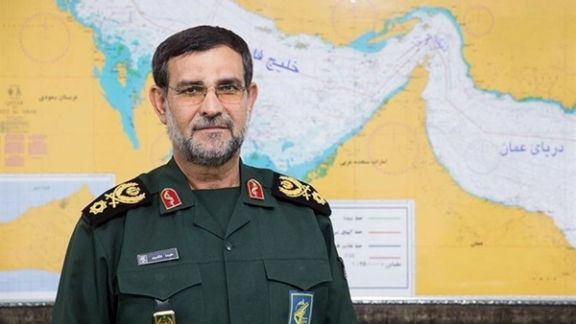
The Islamic Revolution Guards Corps (IRGC) Navy has established a voluntary unit with scope to carry out marine military operations, according to a top commander.
Local sailors will be allowed to carry out missions on vessels armed with rockets, according to IRGC Navy Commander Rear Admiral Alireza Tangsiri, who said the naval Basij has been organized after the successful formation of the maritime Basij in the Persian Gulf.
According to local reports, he said the maritime Basij in the Persian Gulf includes 55,000 voluntary forces with 33,000 vessels, noting that the second phase will be established in the Caspian Sea.
Tangsiri said the naval Basij involves large boats and launches that can sail as far as Tanzania. The shadow navy will have a presence in a series of coastal villages in southern Iran which have been equipped with military vessels.
“The Basij forces use those vessels that are furnished with weapons such as 107mm rockets, and fire them when necessary,” he said.
The revelations come against the backdrop of heightened tensions prompted by attacks on commercial shipping off the coast of Yemen, attributed to Iran-backed Houthis. Simultaneously, Washington is considering reinforcing measures to protect shipping in the Red Sea, where the Yemeni Houthis, with support from Iran, have targeted vessels in recent weeks.
Despite steering clear of direct military involvement in the Israel-Hamas conflict, Iran has leveraged allies such as the Houthis and militant groups in Iraq and Syria to target both Israel and American interests in the region.
Criticism has been directed at the Biden administration for perceived shortcomings in deterring Iran and its proxies in the Middle East, Iran's involvement in the seizure and harassment of vessels forcing the United States to bolster its military presence in the region.

Iran-backed Houthis threatened on Tuesday to ‘sink’ US warships, hours after Washington launched a multinational force to protect vessels transiting the Red Sea.
“We have capabilities to sink your fleet, your submarines, your warships,” a top Houthi official said, according to the IRGC-affiliated Tasnim news agency. “The Red Sea will be your graveyard.”
The new maritime coalition includes Britain, Canada, France, Italy, Spain, Norway, Netherlands, Seychelles and Bahrain. It has been formed in response to Houthi attacks on commercial vessels passing through the Bab el-Mandeb Strait and the Red Sea, transiting between Asia and Europe through the Suez Canal.
In the past few days, half a dozen shipping companies, including four of the biggest five, have ceased operations on this route, citing security concerns for their assets and their personnel.
“This is an international challenge that demands collective action,” US defense secretary Lloyd Austin while in Bahrain on his tour of the Middle East. “Therefore today I am announcing the establishment of Operation Prosperity Guardian, an important new multinational security initiative.”
It is not clear how this naval force seeks to stop Houthis from launching Iranian drones and missiles at vessels transiting the Red Sea. The naval force can only shoot down missiles and drones fired by the Houthis, but short of a military response, the Iranian proxy force can continue to disrupt shipping.
What is known is that some countries will conduct joint patrols, while others provide intelligence support in the southern Red Sea and the Gulf of Aden.
Several other countries have also agreed to be involved without being named, according to Associated Press. Nevertheless, the Biden administration would have a hard time selling it as a victory, since of the many Arab (and Red Sea) states only Bahrain has agreed to join the coalition. The Arab states, including Saudi Arabia, seem to fear the consequences of being seen as siding with the Israelis and the Americans.
The Biden administration has so far refrained from striking back at the Iranian-backed Houthis in Yemen. In his press conference Monday, Secretary Austin refused to answer a question as to why the Pentagon had not conducted a counterstrike.
Biden critics say his soft Iran policy is to blame for emboldening not only the regime in Tehran, but its proxies in Iraq, Syria, Yemen and Lebanon.
“This is beyond ridiculous,” said Senator Dan Sullivan in a thread posted on X, “as part of the Biden administration’s day-one appeasement strategy toward Iran, they delisted the Houthis, an Iranian terror proxy, as a foreign terrorist organization… Now, hardly a day goes by without another headline about the Houthis striking commercial vessels in the region.”
Last weekend, IRGC’s commander-in-chief taunted Americans, claiming that they’d leave the region soon.
“The US and Israel are reliving their bitter experiences,” said Maj. Gen. Hossein Salami. “Did they find victory in their occupation of Afghanistan? Were they able to stay in Iraq after its occupation? They are gradually packing up to leave this land.”
The Biden administration has asked the UN Security Council to intervene in order to stop Houthi attacks in the Red Sea. In a letter to council members US Ambassador Linda Thomas-Greenfield said the attacks on commercial ships threaten “international maritime security and international commerce.”
On Monday, oil giant BP announced that it will pause all shipments of oil through the Red Sea due to “deteriorating security situation” in the region. This could turn into a major headache for world’s big economies, if other oil companies were to follow BP.
“Biden’s failure to respond to Iran-backed militia attacks on shipping is going to start hitting Americans' pocket books,” wrote Senator Ted Budd on X.
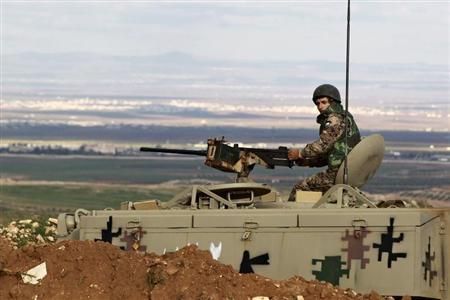
Jordan's army foiled a plot on Monday by dozens of infiltrators from Syria linked to pro-Iranian militias, who crossed its border with rocket launchers and explosives.
Jordan’s State broadcaster said the army blew up a vehicle laden with explosives as it resisted the biggest armed cross-border operation to smuggle weapons and drugs in recent years.
The army earlier said the infiltrators had fled back across the border after injuring several army personnel in the latest of several major incursions since the start of the month that has left one Jordanian soldier and at least a dozen smugglers dead.
Intelligence sources said Jordanian jets launched rare raids into its northern neighbor Syria against hideouts of Iranian-backed drug smugglers in retaliation against the smuggling operation. Iran controls thousands of fighters in Syria for more than a decade, when it got involved in the country’s civil war to support the Syrian strongman Bashar al-Assad.
They said the bombing targeted homes of leading drug dealers and farms that intelligence showed were safe houses for the heavily armed traffickers who have also used drones to drop their hauls.
Earlier officials had said the Jordanian army was considering conducting pre-emptive strikes inside Syria against those militias linked to the drug trade and their facilities in a bid to stem what they say is an alarming rise in cross-border incursions.
Jordanian officials, like their Western allies, say that Lebanon's Iran-backed Hezbollah group and pro-Iranian militias who control much of southern Syria were behind a surge in drug and weapons smuggling.
"Jordan knows the country that stands behind this. It's Iran that is sponsoring these militias. These are hostile military actions against Jordan on its territory," said Samih Maayteh, a former minister briefed by officials on developments.
Iran and Hezbollah say the allegations are part of Western plots against the country. Syria denies complicity with Iranian-backed militias linked to its army and security forces.
UN experts and US and European officials say the illicit drug trade finances a proliferation of pro-Iranian militias and pro-government paramilitary forces created by more than a decade of conflict in Syria.
War-torn Syria has become the region's main site for a multi-billion-dollar drug trade, with Jordan being a key transit route to the oil-rich Gulf states for a Syrian-made amphetamine known as captagon, Western anti-narcotics officials and Washington say.
The army which said it had seized nearly five million pills of captagon on Monday in one of the largest hauls in recent years, warned it would "continue to track these armed groups and prevent any attempt to undermine the kingdom's national security".
"The last few days have seen a spike in these operations that are changing from infiltration attempts and smuggling to armed clashes with the goal of crossing the border by force and targeting border guards," the army statement added.
Jordan's Foreign Minister Ayman Safadi last week told Iran's Foreign Minister Hossien Amir-Abdollahian during a meeting in Geneva that Tehran should do more to rein in militias it finances that are active along the Syrian-Jordanian border, officials say.
The raids by Jordanian jets come as the monarch, a staunch US ally, discussed bolstering the country's defenses with the top US commander, General Charles Q. Brown, chairman of the Joint Chiefs of Staff.
Jordan has been promised more US military aid to improve security on the border, where Washington has given around $1 billion to establish border posts since the Syrian conflict began in 2011, Jordanian officials say.
Report by Reuters